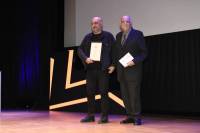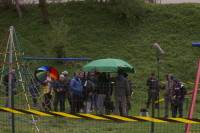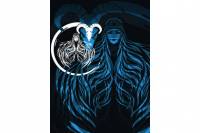PARIS: One Lithuanian film has been selected for Cannes Short Films Competition, while two films from Poland and Hungary will compete in La Cinéf. The Cannes Film Festival will be held 17-28 May 2022.
VALLETTA: Merjen is the first Maltese mini-series acquired by a streaming platform in the USA. The mini-series directed by Abigail Mallia, and written by Carlos Debattista and Salvu Mallia, will air on MHz Choice.
NOVI SAD: After a successful workshop in Belgrade in 2021, Ateliers Varan will move this year to Novi Sad, where the workshop will take place from 13 June to 7 August 2022. The deadline for applications is 23 April 2022.
WARSAW: FNE has teamed up with the Brussels based team of the International Union of Cinemas (UNIC) to bring you regular updates on EU cinema policies that impact all industry professionals across Europe. Click here for FNE UNIC EU Cinema Policy Update.
EU strategy for the cultural and creative industries
12/04: Council adopts conclusions on the cultural and creative industries - UNIC
On 4 April, EU Member States adopted conclusions on a European strategy for the cultural and creative industries ecosystem, sending a signal about their ambitions and strategy for the cultural and creative sectors.
Geoblocking
15/04: Film and audiovisual sector welcomes new European Audiovisual Observatory study - UNIC
Film and audiovisual sector welcomes new European Audiovisual Observatory study paving the way towards a successful end of the Stakeholder Dialogue. Observatory findings confirm wide availability and circulation of non-national European films and AV productions.
12/04: Europeans have access to over 8,500 European films on VOD in their country on average - EAO
The European Audiovisual Observatory, part of the Council of Europe in Strasbourg has just published a new trailblazing report on the circulation of European films on VOD and in cinemas.
Digital Services Act & Digital Markets Act
13/04: Event announcement - The DSM Directive 3 years on: The Polish challenge to Article 17 and the national transposition maze - The IPKat
Three years after its adoption, the discussion of and around the Directive on copyright and related rights in the Digital SingleMarket 2019/790 (‘DSM Directive’) is anything but exhausted.
Events
22 April - Final Trilogue on the Digital Services Act
25-28 April - CinemaCon 2022
19 May - European Audiovisual Observatory Film Focus session in Cannes
20 May - EFF in Cannes
21 May - European Audiovisual Observatory conference “Circulation of films – is there enough availability?”
20-23 June - CineEurope 2022
14 June - UNIC & FIAD Screening - El Buen Patrón at Palace cinema, Brussel
ISTANBUL: Gaspar Noé’s Vortex received the Golden Tulip trophy in the International Competition of the 41st edition of the Istanbul International Film Festival (8-19 April 2022). The Golden Tulip for best film in the National Competition went to the Turkish/Ukrainian coproduction Klondike by Maryna Er Gorbach.
The shooting of the feature Father Figure by the director Nejc Gazvoda begins
Press releases 20-04-2022On Tuesday, 19 April, the shooting of the new Slovenian live-action feature Father Figure by the screenwriter and director Nejc Gazvoda started in Novo mesto. The film is expected to be shot in 25 shooting days.
dok.incubator workshop announces the final selection of talented filmmakers whose projects will be supported in 2022. Eight selected teams will unfold powerful personal stories, social taboos, and some amazing archival materials at this year’s edition of the workshop.
The well-established rough-cut training will bring films from Europe, USA, and South Korea together with international editors, producers, and sales representatives. For the upcoming six months their goal will be to improve the cut, dramaturgy, and marketing strategy of each film, preparing it for festival premiers in 2023.
“During the selection process we searched for films reflecting current social and political situation. I believe we brought up fresh and diverse perspectives on topics that carry an important message about the contemporary world,” says Andrea Prenghyova, the dok.incubator CEO.
The creative documentaries selected for the 2022 edition of the workshop demonstrate varied directorial approaches, cultural backgrounds, and themes. Among them there are two stories on war history which reveal secret political missions of some of the most powerful countries in the world as well as the effects of wars and revolutions on the life of individuals. Both BLIX and Between Revolutions ask a question whether we can learn from the past and they give us a unique perspective on how wars were, and still are, led. These can be eye-opening moments for many of us, especially in the light of current geopolitical situation in Ukraine, Belarus and many other countries fighting for their freedom.
Besides politics, social issues and taboos have always had its place in dok.incubator selection. This year there are films covering a mission on searching identities of dead bodies, confessions of an abuser and a story of gender acceptance. While Who I Am Not follows the main character on her journey from finding out that she is intersex, though bullying and social stigma to being a passionate activist who is finding what it means to be a woman, the director of A Sad and Vulgar Loner exposes a story of a sexual abuser who positions himself as a critic of violence. The identification of dead people is a battle of the protagonist of Pure Unknown, a film about fighting for those who cannot fight for themselves but who still, in the eyes of the main character, deserve dignity and closure.
Similar (and similarly disturbing) topics can be found in the three remaining selected films as well. Even though they are all told through personal family stories, the themes they cover are very universal and can address viewers from all around the world. The film My Missing Aunt is a perfect example of this as it starts with the director’s own investigation of the death of her aunt but later discovering much wider social context of women’s death being purposely forgotten. The protagonist of The Boy and the Suit of Lights is supposed to save his family from poverty by becoming the youngest boy to join a local school of bullfighting. It turns out that the plan is not that simple which is the same moment of realization that the main characters of Man of Marble experience. Their relationship is falling apart, it is full of frustration and repeating disappointment which affects mainly their son. So, the obvious question arises – what does it take to change a family’s destiny?
See full list of the selected films with synopsis’s bellow.
dok.incubator 2022 selected projects:
BLIX /CZ, DE, SE/
Director: Greta Stocklassa, Editor: Jorge Sánchez Calderón, Producer: Petra Dobešová
The photos in Hans Blix’s apartment reveal that this seemingly common Swedish pensioner stood in the epicenter of geopolitical turning points that impacted the politics of today. Twenty years ago, Hans received the most important task of his career. As U.N.’s chief weapons inspector, he was sent to Iraq. After three months, he presented a final report: his team did not confirm the existence of nuclear weapons in Iraq. The Western leaders decided on military intervention, nevertheless. If he had been able to convince the leaders, could he have prevented the Iraq war that shaped the world we live in? Is doing nothing wrong the same as doing the right thing? In the light of the current geopolitical situation, what can we all learn from his expertise? Hans knows that his time in this world is nearing the end. So, he begins to clean up – not only his possessions but through the intimate dialogue with the young director, his past, too.
Between Revolutions /RO, HR, IR/
Director: Vlad Petri, Editor: Cătălin Cristuțiu, Co-editor: Andrei Gorgan, Producer: Monica Lăzurean-Gorgan, Executive producer: Elena Martin
Two women, former university classmates and friends, one Romanian and one Iranian are writing letters to each other, reflecting on their lives and the events they go through, between two revolutions that changed their lives and societies forever. Maria and Zahra studied medicine in Bucharest in the 1970s. In the summer of 1978, before her final year at university, Zahra went on holiday in Iran and decided not to come back. The revolution there just started, and she was immediately immersed in the events that followed. Her distance from former friends and colleagues, from the Romanian society that she’d grown to embrace, was bridged by the letters continuously sent by Maria. The film opens just before the 1979 Islamic Revolution in Iran, carries through the Iran-Iraq War, the austere decade of the 1980s and the Romanian revolution of 1989, composed exclusively of archival images, most of them never before seen, mixing personal with official archival materials.
Who I Am Not /US, DE/
Director: Tunde Skovran
Editor: Marianna Rudas
Producer: Andrei Zinca
Co-producer: Patrick Hamm
As a national beauty queen, Sharon Rose Khumalo lives a life most South African young women only dream of, until her secret is revealed: she’s intersex. When stigma and gender uncertainty overtake Sharon, Dimakatso Sibidi, a passionate intersex activist, storms in her life, propelling her on a journey to discover for herself what truly makes a woman. Sharon and Dimakatso's stories emphasize the diversity of human existence, offering a new depiction of womanhood and femininity that speaks to people of all genders. Who I Am Not sheds light on what it feels to be one of the almost 130 million people worldwide born intersex, living in fear of family shame, social stigma, and facing identity struggles in light of pressure to be binary, and “normal”.
A Sad and Vulgar Loner /ES, DE/
Director: Efthymia Zymvragaki, Editor: Tin Dirdamal, Producer: Patricia Sánchez Mora
“A Sad and Vulgar Loner” explores what happens when an abusive man speaks out, positioning himself as a critic of violence. Without excusing his acts, the film creates a space in which the abuser has a voice, bringing a new perspective on violence and abuse with a focus on the breaking of violent cycles and the urgent need for a healing process in society. As a child Ernesto experienced his father’s violent attacks against his mother. Once an adult it turned out that he had inherited the patterns of violence. He ended up in a psychiatric hospital after trying to kill his wife and son. It took decades of abusive behavior with different relationships until he recognized he had an issue. He then described his inner conflict in an autobiographical novel. Now it is time to turn it into a movie.
Pure Unknown /IT/
Director: Mattia Colombo, Editor: Valentina Cicogna, Producer: Sebastiano Luca Insinga
Every year, dozens of "nameless dead" arrive on Cristina's autopsy table and they would remain without a name if Cristina, medical examiner, and Professor at the University of Milan, hadn’t took on a battle to push the institutions to find their identity. Finding the identity of an undocumented body requires human resources, logistics, time, and money. But often the so-called Pure Unknown belong to the fringes of society and to the most fragile categories of citizens, such as the homeless, prostitutes or illegal immigrants. For this reason, prosecutors and politicians don’t do everything in their power to return those remains to families that, somewhere in the world, are looking for their disappeared loved ones. Cristina's battle, at times visionary at the point of resulting hopelessness, will lead her to the doorstep of the European Parliament, to ask a simple yet complex question: "Who do we want to be?”
My Missing Aunt /KR/
Director: Juyeon Yang
Editor: Duhyun Ko
Producer: Sarah Kang
Producer: Duhyun Ko
Just the night before the college graduation, Juyeon, the director, receives a call from her dad, drunk. That day, she discovers for the first time that her dad had a sister who had committed suicide. Juyeon asks for her aunt’s name, but her dad only repeats, “don’t become like her.” Juyeon spots traces of her aunt from an old album her grandmother kept. After meeting with her aunt’s friends, Juyeon believes that the testimony that her aunt killed herself is no longer reliable.
The Boy and the Suit of Lights /UK, US/
Director: Inma de Reyes Casas, Editor: Nick Gibbon, Producer: Ronny Merdinger, Producer: Aimara Reques
Borja (12) is being raised with his younger brother Erik (9) by their single mother Raquel in Castellón de La Plana, a small coastal town in Spain. Borja’s mother is unemployed and struggles to make ends meet. Hoping he rescues them from poverty, Raquel and Matias (his grandfather) encourage Borja to follow his path inside the family's tradition, so at the age of 12, Borja becomes the youngest boy to join the local school of bullfighting. As he grows up, it becomes increasingly clear that what his family perceived as their ticket out of poverty is becoming an extinct tradition- protestors invade bullrings and councils reduce funding. It is here when Borja begins to question his future and examine his own hopes and dreams.
Man of Marble /PL/
Director: Szymon Kuriata
Editor: Michał Poddębniak
Co-editor: Patrycja Piróg
Producer: Aneta Zagórska
Magda and Remik got connected by adolescent love, then blown over by adulthood. We meet them when their son Franek is four years old. Remik trifles all days away enjoying beer while Magda gets more and more frustrated being the only one who does all the daycare responsibilities. She threatens to sue Remik for child support. This prompts the man to set up the YouTube channel called "Man of Marble". He intends to build houses at hyper speed thus making heaps of money. He quits drinking too. They seem to be a happy family for a while, but then the old habits kick in again. After repeating disappointments, Magda moves with her son to another place. Remik is left with nothing but perhaps the ambitious plan of reviving the channel – so that one day Franek can see that his dad is somebody.
FESTIVALS: Application Open for Second Edition of Svaneti International Film Festival
Festivals 19-04-2022OPEN Call for short films! The 2nd Svaneti International Film Festival will be held on July 10-16, in Svaneti, Mestia, Georgia (Recognized UNESCO World Heritage Site).



























